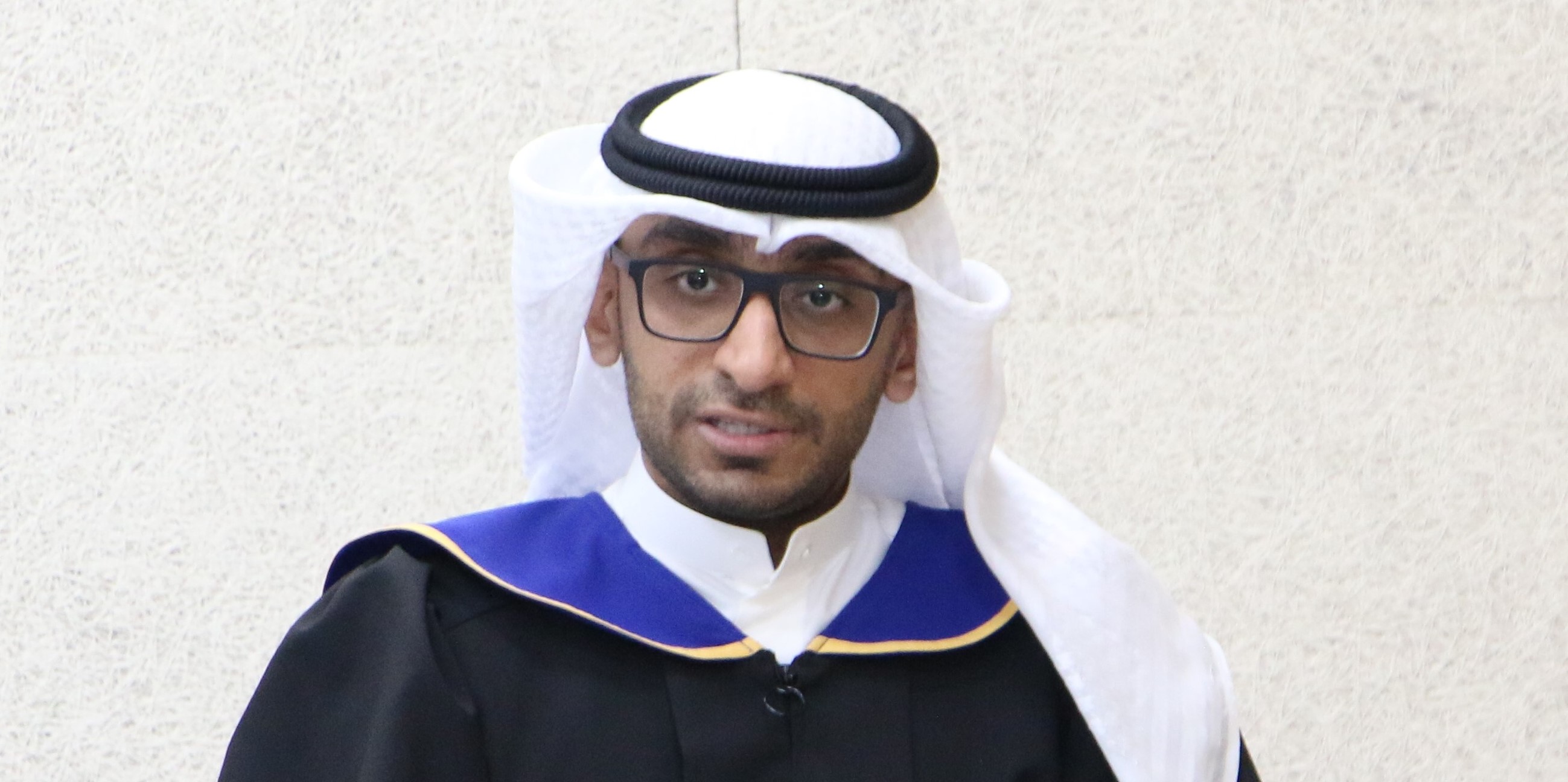
Researcher at the Arabian Gulf University Studies Family Relationships and Their Connection to Certain Variables in Children with Intellectual Disabilities
Arabian Gulf University
03 Feb, 2025
Mr. Ismail Hassan Al Kandari, a researcher in the Learning Difficulties and Developmental Disabilities programme in the Department of Special Education at the Arabian Gulf University (AGU), aimed to uncover the level of family relationships as perceived by parents of children with intellectual disabilities. His goal was to understand the correlation between the level of family relationships among families of children with intellectual disabilities and both social skills and behavioural problems related to aggression.
In his study, which he presented in fulfilment of his Master’s degree requirements, titled “Family Relationships and Their Connection to Certain Variables in Children with Intellectual Disabilities”, Mr. Al Kandari examined the differences in family relationship levels in relation to the severity of the disability and the gender of the children. He employed a descriptive methodology, with a sample comprising 148 families of children with intellectual disabilities.
The researcher utilised the Family Relationships Scale, the Social Skills Scale, and the Aggressive Behaviour Scale as research tools. The findings revealed exceptionally high levels of family cohesion and organisation, while interaction conflict and freedom of expression dimensions were high, and the independence dimension was at a moderate level.
The results indicated a statistically significant positive relationship between family relationships and social skills in children with intellectual disabilities, as well as a statistically significant negative correlation between family relationships and aggressive behaviour. Furthermore, the findings showed no statistically significant differences in the average scores of the overall Family Relationships Scale based on the interaction between gender and severity of intellectual disability, nor were there statistically significant differences based on the gender of the children with intellectual disabilities.
The researcher recommended the organisation of social training programmes in schools or through community support centres, and the development of strategies for managing aggressive behaviour in children with intellectual disabilities. This should involve identifying factors that contribute to aggression and providing a safe and supportive environment for the individual.
The study was supervised by Prof. Maryam Isa Al Sherawi, Special Education Professor, as the primary supervisor, and Dr Wid Daghustani, Special Education Professor and Coordinator of the Learning Difficulties and Developmental Disabilities Programme, as the assistant supervisor. Prof. Subhi Al Harithi, from Umm Al Qura University, served as the external examiner.
